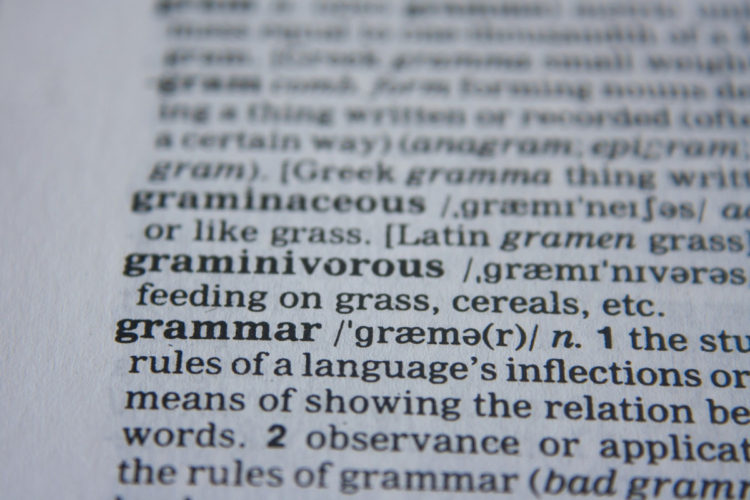
So you’ve finally come to the realisation that you are missing out a whole world of information and fun when you don’t understand Chinese. Now, you’ve decided that you are going to take on the challenge to learn Chinese. Where should you start? What’s the best way to learn Chinese? In this article, you will discover the simplest yet the most powerful ways to learn Mandarin Chinese that will potentially save years of your life trying to learn Mandarin Chinese the traditional way.
Let’s face it, learning a new language is hard work. It requires a substantial time commitment, perseverance and practice. No one is able to become fluent in a language without consistent learning and practices. On the other hand, using smart techniques and learning from good materials and resources can make a huge difference in the result. Adopting the wrong techniques and going down the wrong path will surely lead to more frustration, waste of time, burning out and even giving up altogether.
What’s the traditional way of learning Chinese?
You start with the basic sentences of how to greet someone and introducing yourself. Then the fun stops there. Before you can start a conversation you’ll first need to learn the Chinese Pinyin to memorise all the possible Chinese pronunciations. In case you don’t know, Pinyin is the official phonetic system for transcribing the Mandarin pronunciations into English alphabets.
Then you’ll need to memorise hundreds of words to build your vocabulary and at the same time, you’ll need to take grammar lessons to understand the sentence structures and be intelligent enough to construct sentences using the vocabulary and grammar you’ve learned.
After that, repeat this process of memorising new words, learning new grammar rules and constructing sentences until one day you become fluent in Chinese. Oh, don’t forget to read your Chinese textbook where you’ll learn all the proper Chinese sentences. These all sound very logical and promising, right? Isn’t this the proper way to learn Chinese?
My Epic Fail
I still remember the days when I first came to Australia when I was 15. Having studied 3 years of English in my high school in Beijing and being one of the best in my English class. I already had a few hundred English vocabulary under my belt and I studied super hard on my English grammar. I felt very confident that I will at least be able to have basic conversations with people when I came to Australia.
Few days after I landed in Australia, It came as a total shock to me that I couldn’t understand a thing! There was a time a little girl asked me “How old are you?” but I couldn’t understand it because she said it way faster than how I used to learn it in China. I only learned how to pronounce each word independently but not how the words are pronounced in a complete sentence. I was comfortable with “how old are you?” but what I heard was “howoldayou?” Dang! How did I suppose to understand that!?
If this is not an issue, think about the sentence “How’s it going?” What is the “it” this sentence is referring to? Going where? It doesn’t make sense! If I ask you how I should learn this sentence you are probably going to tell me, “you’ll just have to remember it”. The fact is that slangs and informal spoken languages are considered improper or too advanced to be placed in a traditional learning material and you’ll never get a chance to learn it. Yet these sentences are the most frequently used sentences and expressions in our daily conversation.
So what have I learned from my story of failure? The traditional way of learning a language is a systematic way of failing to learn a language. Before you get too excited and go ahead learning Chinese please make sure you take my following pieces of advice with you and skip years of learning curve studying Mandarin Chinese.
1. Forget about grammar

Rule of thumb: if you want to understand native speakers and talk like a native speaker you’ve got to learn how native speakers talk. Is it worth it to spend time learning Chinese grammar?
Short answer: No!
Long answer: Noooooo!
What is grammar anyway? Simply put, grammar is a set of language patterns. The sentences we speak follows certain patterns and these patterns are summarised as grammar rules. Having the knowledge of grammar enables you to express yourself by making up sentences using your vocabulary but I bet you most of the times in our daily conversations the sentences you are trying to make up have more eloquent versions spoken by locals but because you are too busy learning your grammar, you never know how locals express themselves and you may not be able to tell the subtle differences in meaning when the same thing can be expressed in many different ways. Take a look at the following sentences for a moment:
How are you?
How do you do?
What are you up to?
What’s going on?
What’s up?
How’s it going?
How’s life?
What do these sentences have in common? All these sentences can be used to greet someone, right? As native a speaker, you’ll instantly be able to tell the subtle differences and which sentence to use in what situations. Want to know the sad truth for me? I learned “How are you?” and “How do you do?” at school back in China and I didn’t know any of the other ways of greeting until I talked to my classmates in Australia.
When you are constructing your sentences with grammar, you’ve got this overhead of grammar check running in your head while trying to express yourself synchronously. When you are doing this you know you are not talking like a local even you have the perfect grammar and pronunciation. It slows you down and it just doesn’t feel natural. You have to think hard to say a sentence grammatically correct until you can say that sentence without thinking, which means you’ve already memorised that sentence. Wait! Why didn’t I just memorise that sentence since the beginning!? Yes, you’ve wasted your time learning something so hard that only works as a temporary solution, whereas the actual solution takes much less time and is much easier.
Let me ask you this. If you are a native English speaker, how did you learn your English and became so fluent that everyone talking to you have no doubt that you are a native English speaker? You may find this question ridiculous but have you actually thought about it before? How did you learn your English since birth? Did your parents teach you a whole bunch of vocabulary and grammar rules to let you make up your own sentences? Or did you just imitated how people around you talk? What did you do to imitate how people talk?
You MEMORISED their sentences and phrases! Then after you’ve memorised a significant amount of sentences you have already mastered the patterns of English sentences unintentionally. All you need to do now is to express yourself using the language patterns you are already familiar with. It’s now even hard to make grammar mistakes because it just doesn’t sound right or it’s just not how people talk. So build your sentence vocabulary. What seems to be the longest path is, in fact, the shortest path.
2. Don’t bother with reading and writing

Be fluent in spoken Chinese first before you even think about reading or writing Chinese. Chinese is not a phonetic language. In most European languages, you just need to learn all the alphabets and pronunciations of vowels and consonants to be able to read any text even you don’t understand what you are reading. But in Chinese, there are no alphabets, and Chinese characters don’t follow any patterns of pronunciation. This means you won’t be able to read Chinese characters unless you know the characters and you won’t know how to write a Chinese character unless you’ve memorised it.
Trying to learn how to speak Mandarin Chinese and how to write Chinese is just like trying to learn two completely different languages together. Want to know the best way to burn yourself out? Learn the spoken and written Chinese together. Even if you have lots of time, I would still recommend focusing all your time to master spoken Chinese first because this way you can achieve fluency twice as fast than dividing your time to learn two things synchronously.
Ask yourself this question: Do I want to spend the next 5 years to be fluent in only spoken Chinese and be able to communicate anything in Chinese or do I want to spend the next 5 years to be an intermediate Chinese learner in both spoken Chinese and written Chinese with lots of limitations in my communication?
Getting started in learning a language is always the hardest, with your limited vocabulary you can’t really do much. But once you’ve reached a level where you can have basic conversations with native speakers, things start to click and learning Chinese becomes much more enjoyable and rewarding. You get to learn new words and phrases faster and more passively. Learning two things at the same time will surely slow you down in reaching that level of proficiency. You are also running a higher risk to burn yourself out and give up altogether.
Written Chinese is hard. I know many of you are fascinated by how cool the Chinese characters look, but that look comes at the expense of being difficult to remember and write. Before you can read and understand a Chinese article you’ll need to learn around 3000 Chinese characters. That’s 3000 Chinese characters before you can actually see some results from the time you’ve spent expanding your vocabulary. I have to say that’s a pretty steep learning curve. Every Chinese character is unique. Knowing 3000 characters doesn’t really give you any advantage to learning the next character compared to knowing only 300 characters. In fact, even local Chinese find it hard to learn written Chinese.
I remember learning written Chinese back in my primary school. It literally took years before I could write a simple essay and what’s worse is that if you stop writing for a while you will start to forget how to write more complicated characters. In Chinese, the pronunciation of one character corresponds to multiple other characters. When you are writing a word, even you have memorised all the Chinese characters you still need to know which character of the same pronunciation is the correct character to write. Amusing as it may sound but even local Chinese make mistakes on using the wrong character all the time.
As is the case for any language, written articles tend to use more vocabulary and the language used tends to be more formal. A considerable amount of words you’ve learned can be a bit too formal for your daily communication.
If you want to know more about why Chinese is hard, especially written Chinese, you can take a look at this article.
Are you discouraged to learn written Chinese by now? Here’s the good news for you: most Chinese don’t even need to write Chinese characters nowadays. Do you write English with your hand often? You can type Chinese without knowing how to write it. There is a distinction between recognising a Chinese character and knowing how to write a Chinese character. I’m sure there are many English words that you can recognise, but you can’t spell correctly.
Let’s stop and meditate on this for a second. If you are a programmer you’ll appreciate this. If you have a typo in your program you’ll get a syntax error and your program won’t work but our brain may not even notice it. This is because our brain recognises the form of the word rather than checking every single letter sequentially. Isn’t our brain amazing?
Back to my point, almost all Chinese use Chinese Pinyin to type Chinese characters on a computer. Be it Windows, Mac OS X, android or iOS as long as you know Chinese Pinyin you can type Chinese characters. All you really need to learn is to be able to read. On the other hand, learning to read Chinese is still hard although it is easier than writing Chinese.
3. Perfecting your pronunciation
Tone
Chinese is a tonal language. The tone of your pronunciation is critical in delivering the meaning. For example, the word Shuai, depending on the tone being pronounced can either mean handsome or loser. You don’t want to say to someone “You are such a loser!” (Ni Hen Shuai) when you really want to say “You are very handsome!” (Ni Hen Shuai). Lol. Learning Chinese pronunciation without the tones is just like pronouncing only half of an English word or rdng Englsh wtht vwls. Many of you may find Chinese pronunciation very challenging as many Chinese pronunciations have no English equivalent and some pronunciations are also very similar to others. Making sure you get your pronunciation right since the beginning of your learning is, therefore, mission critical.
Choose your teacher wisely
The Bible says if the blind lead the blind, both will fall into a pit. It seems obvious that you want to make sure you are learning your Mandarin Chinese from someone who speaks with authentic pronunciation. The last thing you want is to spend years learning Chinese from someone only to find out that you’ve been learning the wrong, inaccurate or even funny pronunciations without noticing it. If you hear people asking you to repeat what you’ve just said every now and then most likely it’s due to your pronunciation.
Back in my grade 5, my primary school decided that we should learn English and employed an English teacher to teach us English. It turned out that her English pronunciation was appalling! She literally pronounced “that” as “das” without even trying to pronounce the “th” sound (maybe she learned that from someone else?). This is just one example of her poor pronunciations. All of us innocent students who have never heard the proper English pronunciation eagerly learned her poor pronunciation. You know what happened next. I had to unlearn all my English pronunciations. The longer you are accustomed to the wrong pronunciations the harder it gets to correct them.
Learn from a native Beijing speaker
I was a bit reluctant to write this point because this can be a bit controversial. But I think this is a very important factor to talk about and for the benefit of those of you considering learning Mandarin Chinese hope this will make things clear for you.
This is to do with the accent. In English, there are American accent, British accent, Australian accent, etc. There is really no right or wrong. On the contrary, there are over 200 dialects spoken throughout 23 provinces of China. Some dialects are very similar to Mandarin Chinese, some dialects sound completely different to Mandarin Chinese. Although Mandarin is the official language of China and every student is required to speak Mandarin at school, most Chinese speak their own dialect at home. Except for some well trained younger generation Chinese, most Chinese talk with accents.
Chinese coming from the southern part of China (south of the Yang Zi river) usually have much more different dialect to Mandarin and, therefore, speak with stronger and more distinguishable accent. For example, many southern Chinese can’t pronounce Si and many Shanghai Chinese can’t differentiate Wang and Huang in their pronunciation. Taiwan Mandarin uses much less neutral tone (or the fifth tone) in their pronunciation.
Please don’t get me wrong, I’m not discriminating against Chinese who speaks with an accent. In fact, I’m sometimes even a bit jealous of people who can speak a dialect other than Mandarin, it’s like you are born with the gift of another language, but I can only speak Mandarin. All I’m trying to point out here is that when you have decided to learn Mandarin Chinese it would be better if you can learn from someone who can speak Mandarin without the accent from their hometown.
One interest fact for you: there is not a single city in China where people talk without any accent. Some of you may be scratching your head now. What about Beijing? There is actually Beijing accent. Huh? Beijing accent? Yes, Beijing-born Chinese normally talk Mandarin with Beijing accent, which is the closest Mandarin to the official Mandarin than any other dialects of China. In Beijing accent, not every single word is pronounced clearly and there are some shortened phrases to some common dialogues. There is also a small set of phrases that are exclusively used by Beijing Chinese that Chinese outside Beijing don’t understand.
Beijing Chinese can normally switch between Mandarin with and without Beijing accent quite easily. The reason people prefer to speak with Beijing accent is because it is more laid back, which requires less energy, effort and number of syllables to express a sentence compared to saying the same thing without the Beijing accent. For example, “I don’t know” in Mandarin is Bu Zhi Dao. If you say this fast enough it sounds like Bu-R Dao, which is the Beijing accent.
One last point I want to make is the “er” sound in Mandarin. To keep it short, most southern Chinese find it hard to pronounce and they don’t pronounce it. On the other hand, Beijing Chinese are renowned for pronouncing the perfect “er” sound. Many Chinese imitate and take pride for being able to pronounce the “er” sound.
4. Talk out loud and make mistakes

Don’t be afraid of making mistakes. The truth is that people expect you to make mistakes when you are learning Chinese. In fact, making mistakes is probably the fastest way to learn. We are all good at remembering our mistakes. This is because our brain is good at associating things together. When you make a mistake for saying a wrong sentence and you made fun of yourself, your brain will associate that event with the sentence. So long you can remember that event you will remember that sentence. Therefore making mistakes and rectifying your mistakes will actually help you to remember it forever.
Imagine you make one mistake for every sentence you speak you’ll have a story associated with every sentence you learned and you’ll most likely remember all these sentences forever. Avoid making mistakes by avoiding talking is the biggest mistake a language learner can make. So start making mistakes!
5. Listen

We don’t live in a perfect world. People speak with accents. You can learn the perfect Mandarin Chinese pronunciation but still don’t understand what people are talking. I remember one of the biggest challenges I had when I came to Australia was not able to understand so many English accents. There is Australian accent, American accent, British accent, French accent, Italian accent, Indian accent, Malaysian accent and so on. The only accent I was familiar with was the Chinese accent. I could see English native speakers sometimes having trouble understanding the Chinese accent whereas I could perfectly understand all sorts of poor English spoken by a native Chinese.
So how do you overcome the accents? Simple, just listen. When you hear an accent long enough you’ll eventually reach a stage where you could suddenly understand most of the things. My wife comes from Wuhan and her father only speaks Wuhan dialect to me. At the beginning, I couldn’t understand most of the things he spoke and it was frustrating. After months of listening, most of the time without my wife’s translation, I can now understand most of the things he speaks. I don’t know how this works but all you need to do is listen and your brain will do all the hard work for you.
Memorising a sentence by repeating it over and ever again yourself is different to hearing that sentence being spoken over and over again. This is because listening and talking utilise different parts of our brain. By listening to Mandarin Chinese spoken by others, will not only improve your listening skills but also help you to memorise new words and sentences using a different part of your brain.
If you have been watching TV long enough I’m sure you can memorise some of the advertisements. You were probably not intentional to memorise those advertisements but because you have heard them so many times you can’t help but memorised them. If you can memorise those ads, why not apply that technique to learning Mandarin Chinese?
Having trouble memorising a Chinese sentence? Just play that Chinese sentence over and over again and you’ll memorise it eventually. The best way to do this is to search for that sentence you want to learn on YouTube and listen to that sentence spoken by a Chinese speaker over and over again. What if you can’t find that sentence from YouTube? Copy and paste that Chinese sentence into Google Translate and let Google pronounce it for you. Google Translate is pretty good at pronouncing Chinese. Not that mechanical when compared to pronouncing English. Even better if you use a Macbook and you can let Siri pronounce it for you which is better than Google Translate. Just select the text you want Siri to pronounce and press Option + esc on your keyboard and Siri will start reading it for you.
6. Avoid burnout. Don’t learn too much at once

If you can only choose one thing to remember after reading this whole article this is the one I want you to remember. I’ve personally experienced burnout so many times and I can assure you this is definitely the one thing that you don’t want to experience yourself. What is burnout anyway? According to Wikipedia, burnout is a syndrome characterised by long-term exhaustion and diminished interest.
Have you had times when you were super excited to learn something? Something that cannot be mastered in a short period of time but your excitement made you super confident that you would master it fairly quickly if you could just spend two hours a day on it. You could see your smile of victory already when you looked into the mirror. You were an action taker and you immediately executed your plan.
On your first day, you studied three hours instead of two because you were an overachiever and you felt good about yourself. On the second day, you studied two hours sticking to your plan. Then in the next week or month, you got distracted with many things happened in your life. You just couldn’t keep up with your two-hours-a-day plan. You stopped studying until someday you could dedicate two hours of study to it again, which never happened. You were burnt out.
The moral of the story is this: learn Chinese with realistic commitment or you could burn out. It’s better to learn just one single word a day than to over commit yourself at the beginning and then give up completely after a while. You don’t start off dedicating two hours a day every day learning a language and get burnt out and say “This is too hard! It’s impossible to learn!” Of course, it’s too hard, you made it impossible for yourself! Try starting easy with as little commitment as possible. Then you can gradually adjust the time and effort as you go. Notice I used the word “adjust” not “increase”. This is because for most people, time and schedule constantly change in life. You may find yourself not able to cope with the increased commitment. Then you can decrease it. Be flexible and easy on yourself.
Do you know the story of the rabbit and the turtle race? This is it. The rabbit got burnt out (well, not really, but I hope you get my point) and didn’t complete the race. When it comes to learning a language, you don’t want to be a rabbit.
7. Substitute your daily conversation with Chinese phrases and sentences
My mum lived in Hungary for two years back in the 90s. She didn’t even know how to say hello in Hungarian when she first arrived there. Two years later when she left, she spoke fluent Hungarian. Quite an achievement right? Unfortunately now she can only recall a maximum of 10 sentences in Hungarian because she had never heard or spoken Hungarian ever since.
If you learn a language but never use it in your life, you may forget it eventually. Start using your Chinese vocabulary since day one by substituting your conversation with Chinese you already know. This can also be a great motivation for you to expand your vocabulary. You’ll be able to see how you are progressing by hearing yourself replacing more and more English words and sentences with Chinese.
8. Make some Chinese friends

No matter where you go in the world, it’s hard to find a city with no Chinese population. Why not make some Chinese friends and practice your Chinese with them? When you meet with a Chinese, chances are he/she is learning English. Why not do a language exchange?
9. Stay motivated and persevere

Learning a language is like riding a bicycle. It feels like riding downhill when you are motivated and seeing the results you want and it feels like riding uphill when you find it hard to progress at times. How can you constantly stay motivated? Ask yourself this question: Why do I choose to learn Mandarin Chinese? You’d better have a strong enough reason, otherwise, it’s going to be hard for you to stay focused.
We live in a world of distractions. Constantly bombarded by new information and options. It’s too easy to get distracted by new ideas and get carried away from the goals you just set for yourself last month. After you finish reading this, I want you to spend 3 minutes to write down on a piece of paper why you want to learn Mandarin Chinese and all the benefits and the opportunities it can bring you if you are fluent in Mandarin Chinese. Hang it on your wall, create a reminder on your phone, bring it with you wherever you go. Whatever you do, make sure you will remember to read it when you feel unmotivated.
When you feel discouraged for whatever reason, also keep this in your mind: as long as you keep moving forward you will eventually reach your destination and you just can’t fail. Referring back to the story of the rabbit and turtle race, don’t just focus on the silly rabbit that took a nap during the race, but look at what made the turtle win the race. It’s determination and perseverance.
I want to congratulate you for investing your time and persevered through this long article. You are now equipped with the mindset and techniques to learn authentic Mandarin Chinese faster with less effort. This will surely put you ahead of most other Chinese learners who spend years learning but sadly give up in the end.
If you find this article helpful to you show some love to your friends by sharing this with them. I’d also love some thought and feedback from you. Feel free to leave a comment below.


Splendid piece of advice on learning s new language.很好。
This helped a lot! 谢谢你
是的。 Good good article. I like this app
https://m.facebook.com/chineseskill
and watching youtube videos that focus on specific tasks. Typing Mandarin on a computer makes written form easier and texting friends in Mandarin can be quite fun.
This is really good. Just recently I started coming to the realization that I need to focus on memorizing sentences.
I am not sure about completely ignoring writing. As you know, we really struggle with telling apart sounds like c/j/s/z, x/sh, q/ch, etc. If I learned pinyin earlier, I might have learned less incorrect pronunciation that I need to go back and fix.
Thanks for your comment! For writing, it really depends on your situation. Maybe learn one or two hundred common characters first is good. Especially if you are in China and you often see Chinese characters.
For pinyin and pronunciations, you’ll need to slow down and practice. That will save you time in the long run.
Keep it up!
This is the most useful artical I’ve got to pass through. Hurraaah! My Chinese!!
Ignoring reading and writing is probably the worst advice I’ve ever seen. I have been studying Mandarin in Taiwan for the last 5 years; one thing I know for sure is learning Chinese is not easy! However, anyone can do it IF they have the desire. If you want a short-cut, you don’t have the desire, and you won’t cut it. If you are not willing to move to China or Taiwan to be immersed in the language and thrill in the language in it’s written and spoken form, you don’t have the desire. Learning characters is a thrilling experience for people that have the right enthusiasm; if it sounds like a dull and laborious process, Chinese is not for you, trust me.
Great comment! Thanks for pointing this out!
I actually partially agree with your point. Without a strong enough desire it’s so easy to give up.
Desire to learn Chinese normally comes from two sources:
1. Out of necessity. E.g. living in an immersive environment, need to communicate with someone who can only speak Chinese
2. Out of interest
It takes a lot of will power, perseverance and self-discipline to learn Chinese purely out of interest. Once learned, one may forget the language if the language is not put into use for a long time.
Therefore, necessity is very important. You may start with pure interest at the beginning but it’s the necessity that enables you to persevere.
Having said all these, it has nothing to do with the strategy of learning a language.
What you are saying is that if you have enough desire to learn Chinese, you can learn it the hard way and if you fail it means your desire is not strong enough.
What I stated in the article is that learning reading and listening is more important and easier (for most people) than learning how to read and write.
I’m not saying “don’t learn to read and write”. I’m saying “do that later once you are confident with speaking and listening”.
I still believe this is a good strategy in learning Chinese.
Just stumbled upon this from my Google News feed. Thanks for all the advice! I’ve been contemplating learning Chinese, and it’s nice to have someone both confirm some of the methods I used when learning Korean, and teach me new things appropriate to Mandarin itself.
I’ve been studying Mandarin for the past 7 years (out of desire not need) and I loved this article. After two years I started learning characters and now find being able to read helps me understand grammar and expand my vocabulary. But, I’ve always focused on speaking and listening.
I’m on HSK 5 now and getting a little frustrated trying to understand spoken Chinese on TV as it’s so fast and idiomatic. It seems like there’s the “taught Chinese” and the “real Chinese”. You emphasized this in your article nicely. I have a full time job but go to China 3 weeks a year to study one on one at a school in the Southwest. I also take a two hour a week online class from China. Slow and steady has indeed been my mantra.
My goal is to be able to watch Chinese movies and TV to expand my spoken Chinese. It’s hard to do outside of China, and sometimes hard to do living in China if you don’t get yourself out there and speak to real people.